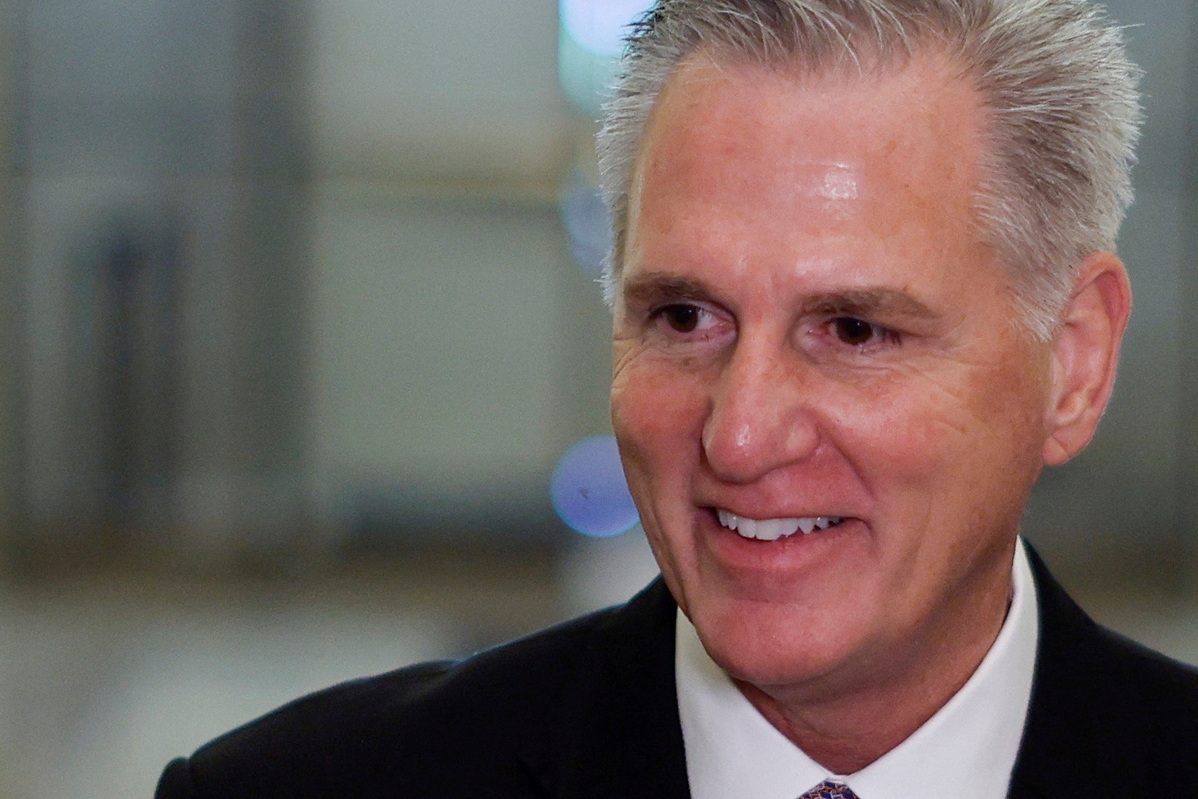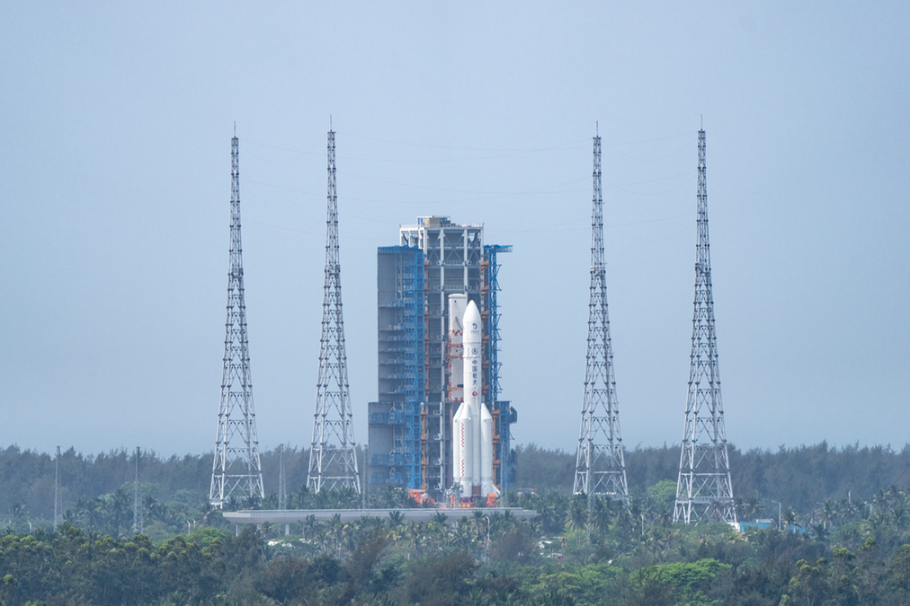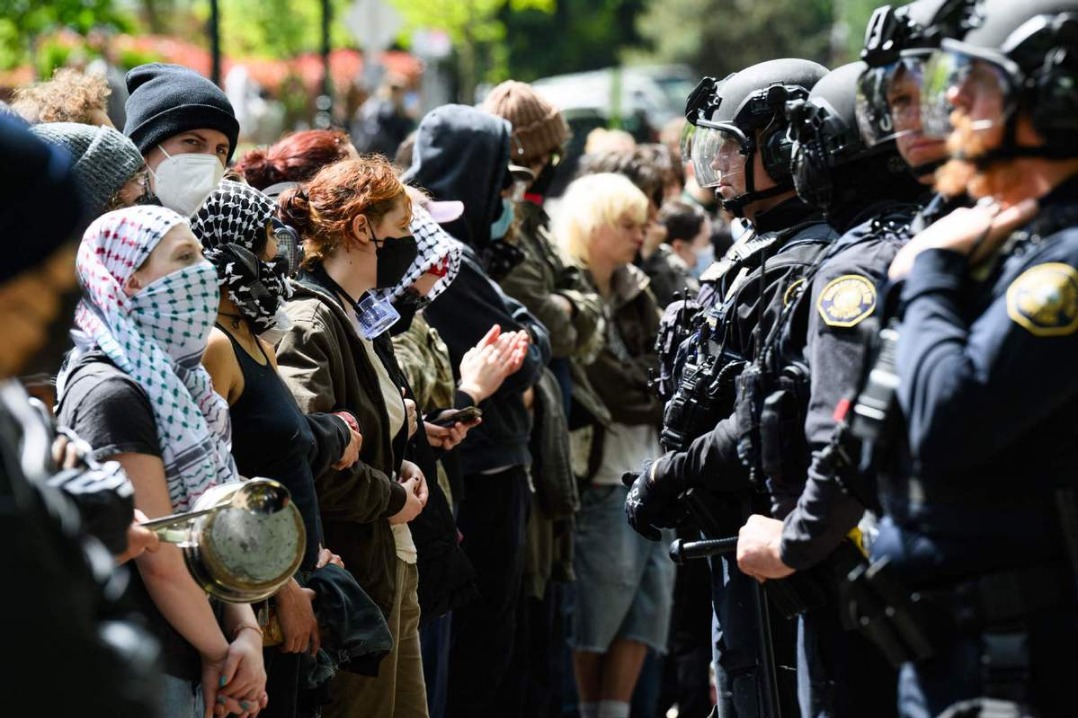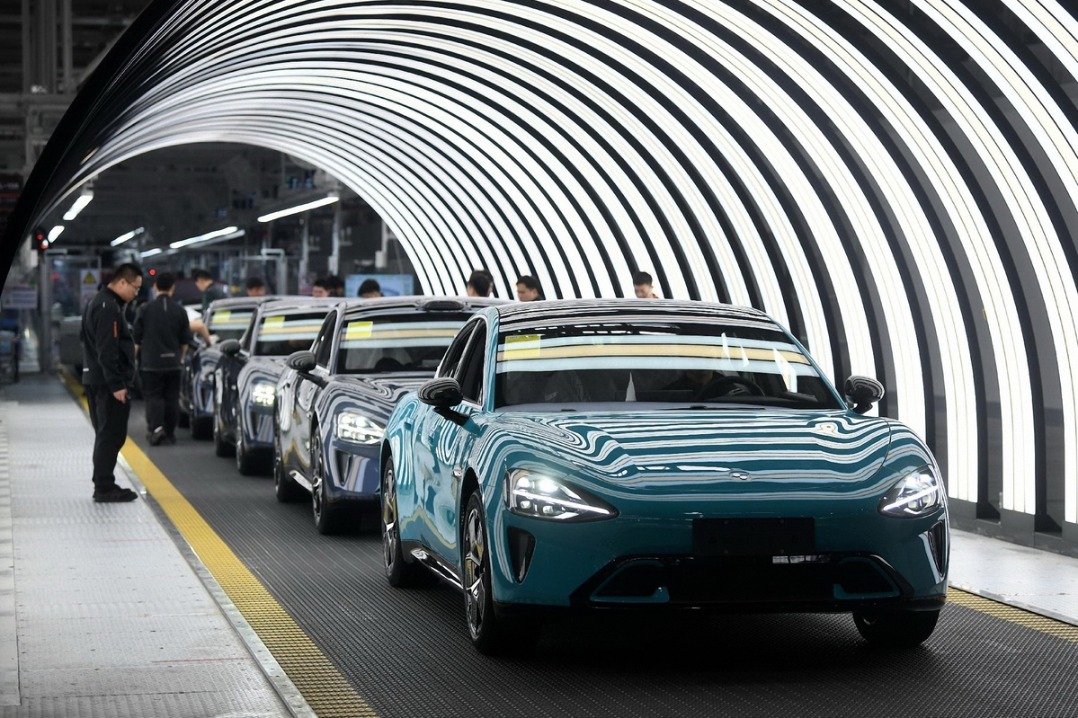Trump takes opposite view of McCarthy on shutdown
By HENG WEILI in New York | chinadaily.com.cn | Updated: 2023-09-26 09:49

The political machinations over whether to continue funding the US government before a Sept 30 deadline intensified over the weekend.
Former president Donald Trump, the front-runner for the 2024 Republican presidential nomination, who backed current House Speaker Kevin McCarthy when the latter faced a prolonged confirmation battle in January, said Republicans should not be concerned about being blamed for a government shutdown.
"The Republicans lost big on Debt Ceiling, got NOTHING, and now are worried that they will be BLAMED for the Budget Shutdown. Wrong!!! Whoever is President will be blamed," Trump wrote late Sunday on his Truth Social media outlet.
Asked about Trump's comments on Monday, McCarthy said: "I think we're much stronger when we stay open. I don't understand how not paying the troops and not paying our border agents ... what we're trying to do is secure our border. That would be a part of funding the government.
"A shutdown would only give strength to the Democrats. It would give the power to Biden," McCarthy said in an interview last week on Fox News. "It wouldn't pay our troops. It wouldn't pay our border agents. More people would be coming across."
McCarthy maintained that he wants to pass a short-term bill, known as a continuing resolution, which would keep the government funded at the same levels until an agreement is reached. But that approach has been vociferously opposed by numerous conservatives in the House.
"You have to keep the government open. I mean, if people want to close the government — only makes them weaker," he said.
Lawmakers are scheduled to reconvene on Tuesday evening to vote on advancing four appropriations bills — for the Defense Department, Homeland Security Department, State Department, and foreign operations.
The measures include reversing an $11 billion Biden administration climate initiative, and resuming construction of the Mexico-US border wall.
US President Joe Biden has vowed to veto at least two of the bills.
In total, lawmakers must advance 12 individual appropriations bills in the House and Senate before sending them to the president's desk. But it's unlikely both chambers will be able to advance all 12 and reach a compromise before the shutdown deadline, which is midnight Saturday.
A shutdown would negatively impact the country's credit, credit rating agency Moody's said on Monday, one month after Fitch downgraded the US by one notch after a debt ceiling standoff.
"If there is not an effective fiscal policy response to try to offset those pressures ... then the likelihood of that having an increasingly negative impact on the credit profile will be there," Moody's analyst William Foster told Reuters. "And that could lead to a negative outlook, potentially a downgrade at some point, if those pressures aren't addressed."
A shutdown, however, would not interrupt government debt payments.
Senate Majority Leader Chuck Schumer, a New York Democrat, hopes to pass a short-term spending bill this week ahead of the deadline, but it could be held up.
"I will oppose any effort to hold the federal government hostage for Ukraine funding. I will not consent to expedited passage of any spending measure that provides any more US aid to Ukraine," he said on X on Sept 21.
Congress so far has approved about $113 billion in military, humanitarian and economic aid to Ukraine in four packages, and Biden has been seeking another $24 billion.
Pentagon spokesperson Chris Sherwood told Politico on Thursday that Ukraine operations would be exempt from a shutdown following a visit last week by Ukrainian President Volodymyr Zelensky to Washington to seek more aid.
Sherwood told Newsweek that the assistance to Ukraine "is an excepted activity under a government lapse in appropriations".
The news stoked some outrage on social media as to whether the Pentagon had the authority for such an action.
Senate Minority Leader Mitch McConnell, a Kentucky Republican, has supported bipartisan efforts to fund the government.
He was called out by Trump on Monday.
"It's time Republicans learned how to fight!" Trump wrote. "Are you listening Mitch McConnell, the weakest, dumbest, and most conflicted ‘Leader' in US Senate history?"
White House press secretary Karine Jean-Pierre blamed the GOP for the situation on Monday: "This week, as House Republicans' chaos continues to march us toward an extreme Republican shutdown, we are calling out how a shutdown would damage our community's economy and national security, and we're going to hold extreme House Republicans accountable."
US Agriculture Secretary Tom Vilsack said on Monday that a shutdown risks nutritional assistance for the nearly 7 million low-income women and children who rely on benefits.
He said the "vast majority" of participants in the Special Supplemental Nutrition Program for Women, Infants, and Children, or WIC program, would see an immediate reduction in benefits, with cuts in the days and weeks after a shutdown starts.
Millions of federal workers will not be paid during a shutdown but will receive back pay once there is a settlement.
Some vital services will continue uninterrupted. Social Security checks will be sent out, and Medicare and Medicaid benefits would continue.
The mail will still be delivered, as the US Postal Service is an independent agency.
Many national parks would close, although some stayed open in previous shutdowns, with fewer services.
Air traffic controllers and Transportation Security Administration agents would have to temporarily work without pay.
The president, members of Congress, and Supreme Court justices still will be paid.
The federal budget deficit totaled $2 trillion over the past 12 months, according to the nonpartisan, nonprofit Committee for a Responsible Federal Budget.
Spending has totaled 24.1 percent of US GDP over the past year, while revenue has comprised 16.8 percent of GDP, down from 19.6 percent in the previous 12 months, the committee found.
Deficits have totaled 7.4 percent of GDP over the past year — larger than any fiscal year in history in which the country did not face a war, recession or other major emergency.
Agencies contributed to this story.
























